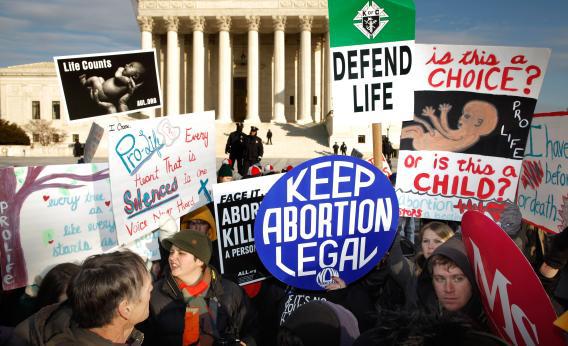Most of the politicians and judges responsible for abortion policies in this country are trained as lawyers – among the chief proponents of Mississippi’s infamous personhood amendment is a local business lawyer. However, a new survey shows that most law schools aren’t doing enough to educate future policymakers about reproductive rights issues. Law Students for Reproductive Justice surveyed course offerings at U.S. law schools approved by the American Bar Association and found that only 1 in 5 had offered a reproductive rights course during the last eight years. All in all, 39 law schools have offered just 51 classes focused on issues like abortion, reproduction, and family or sexual rights since 2003.
LSRJ doesn’t explain why so few reproductive rights courses are being offered, so I put that question to Priscilla Smith, a former litigator with the Center for Reproductive Rights now at Yale Law School. Smith has singlehandedly taught six of the 51 classes identified in the survey. She identifies gender and politics as major reasons why the legal academy has been so “remarkably silent” on reproductive-rights issues, especially between 1995 and 2005. Many female scholars were afraid that their scholarship would never be taken seriously if they focused on “women’s issues” from the start. Then there was the backlash against Roe v. Wade, the 1973 Supreme Court decision that established a constitutional right to abortion. Many young scholars were reluctant to write about a subject that was considered so political, “as if writing about terrorism wasn’t political, or writing about the Second Amendment wasn’t political,” Smith retorts.
Fortunately, the course offerings on reproductive rights are trending in the right direction. The number of reproductive-rights classes has increased since 2005, and the survey finds more classes offered in the 2010-11 academic year than ever before. Smith attributes the upsurge in part to controversy over Gonzales v. Carhart, the 2007 Supreme Court decision that outlawed so-called “partial birth abortions,” reasoning in part that women might come to regret them. And recent writings by well-respected, tenured professors like Reva Siegel and Jack Balkin at Yale and Pam Karlan at Stanford have encouraged younger scholars to write on reproductive rights as well. As their students advance in politics and the law, hopefully they will bring with them a more sophisticated understanding of these important issues.
